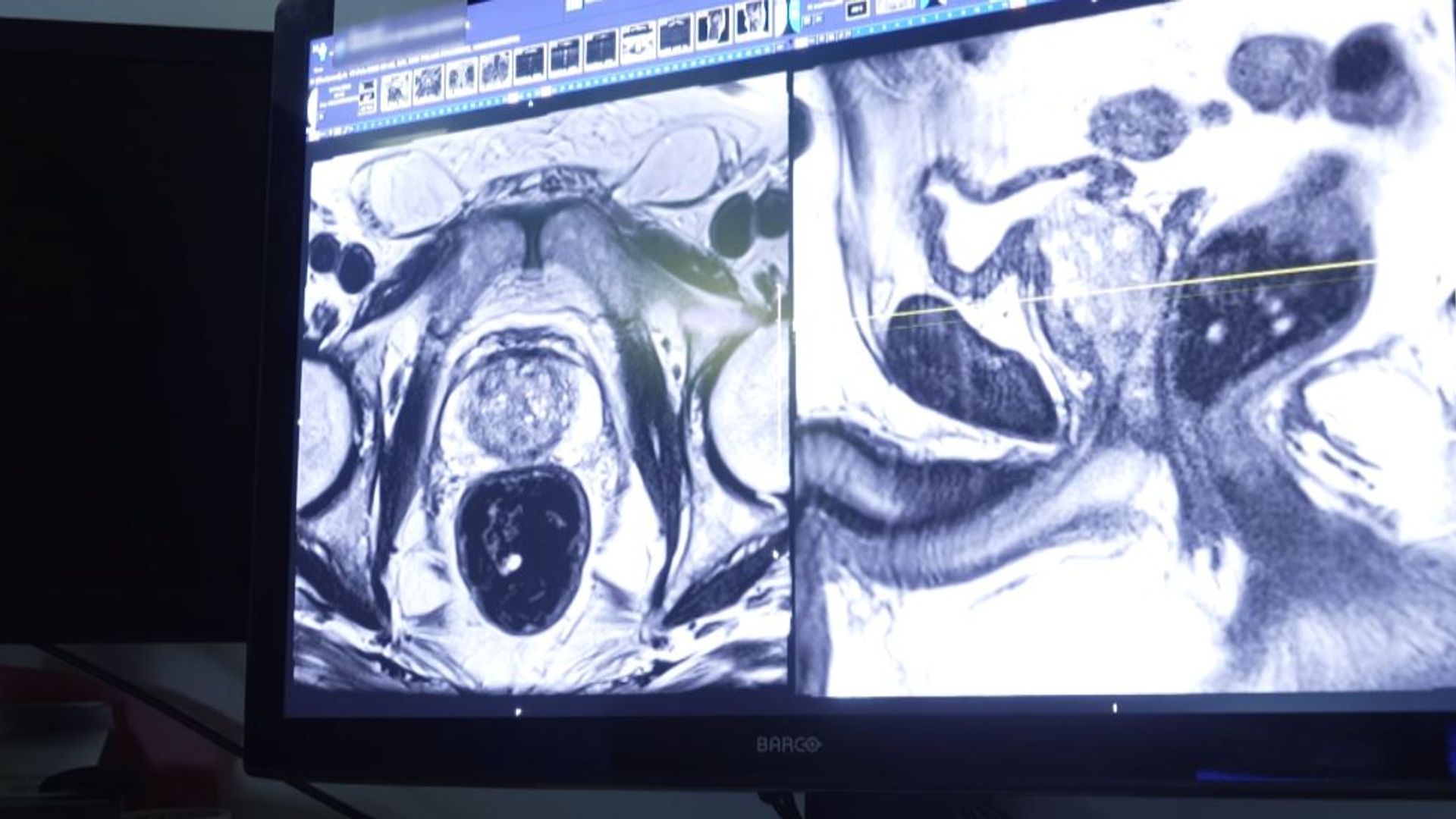Thousands of men are to be checked for prostate cancer in one of the first large-scale European trials of smart screening.
The pilot study, starting next week in Ireland, will combine a blood test with personal risk factors and an MRI scan to increase the accuracy of screening men in their 50s and 60s.
Up to now health experts have rejected population screening in the belief that the benefits of earlier cancer detection were outweighed by the risks that some men could have unnecessary biopsies and risky treatment they don’t need.
But the PRAISE-U study is an attempt to save lives in a more targeted way, filtering out men who don’t have cancer at an early stage, so they don’t come to any harm.
David Galvin, the head of the study and a surgeon at the Mater Hospital in Dublin, told Sky News that a safe, effective screening strategy was urgently needed.
“There is a tsunami of elderly patients coming towards us,” he said.
“There’s going to be a sharp rise in prostate cancer unless we have a way to detect the disease early and not burden our health care services with vast numbers of scans and biopsies.”
Thousands diagnosed too late
Prostate cancer is the most common cancer in men in Ireland. In the UK it is now the most common of all cancers, causing more deaths than breast cancer.
There are no symptoms in the early stages. Around 12,000 men a year in the UK alone are diagnosed too late to cure.
Studies have shown that a blood test for a prostate protein called PSA can diagnose cases at an earlier stage, reducing deaths by 40%.
But not all men with cancer have high levels of the PSA protein.
And conversely, high levels can also be caused by other prostate conditions, infections, exercise and sexual activity.
The unreliability of the test has held back its use for screening.
But in the Irish pilot study, men will be scored by their PSA level and whether they have other risk factors such as black ethnicity or a family history.
Those at low risk will be retested in future.
Around half of the men will undergo a detailed MRI scan of their prostate to check for tumours – and only half those will then need a biopsy, in which a needle is inserted to extract cells for a precise diagnosis.
Mr Galvin said the multi-stage screening meant only those who really need a biopsy will have one.
“I worked out that if you have the PSA test, there’s about a 1 in 40 chance that you will ultimately need a biopsy.
“The other 39 men are reassured that testing is all normal and they don’t have any clinically significant disease.”
Read more:
Simple test could revolutionise dementia diagnosis
Acid attack victim on how donated placenta saved eye
Odds of asteroid hitting Earth rise again
Follow our channel and never miss an update
‘I got away with it by the skin of my teeth’
The PRAISE-U study is backed by the European Association of Urology and funded by the EU.
Around 8,000 men in Waterford and two areas of Dublin will be randomly invited for screening over the next year.
Tony Ward, a rugby legend and one of the best number 10s to play for Ireland, was diagnosed with an aggressive prostate cancer just over a decade ago. Even now he needs daily treatment and regular scans.
He told Sky News screening to detect cancer at an earlier stage is desperately needed.
“It’s everything, it’s massive,” he said.
“I did not have the early diagnosis, but I got away with it by the skin of my teeth.”
‘Very curable cancer kills 12,000 men every year’
The UK’s National Screening Committee, which advises the Department of Health, is reviewing the evidence on prostate cancer screening. But it’s already taken two years, and a decision still isn’t due until the end of 2025.
Chiara De Biase, director of health services, equity and improvement from Prostate Cancer UK, said men were dying unnecessarily as a result.
She said: “12,000 men die every year from what is – when caught in its earliest stages – a very, very curable cancer.
“We think the evidence [for screening] is there and we can’t see why this has taken so long.”
A spokesperson for the UK government’s Department of Health and Social Care said: “Prostate cancer patients are waiting too long for diagnosis and treatment, and we are determined to change that.
“Our National Cancer Plan will transform the way we treat cancer, making the UK a world leader in cancer survival by fighting the disease on all fronts, through improving research, diagnosis, screening, treatment and prevention.
“The UK National Screening Committee is reviewing the evidence for prostate cancer screening programmes, including targeted approaches for men at higher risk.”





